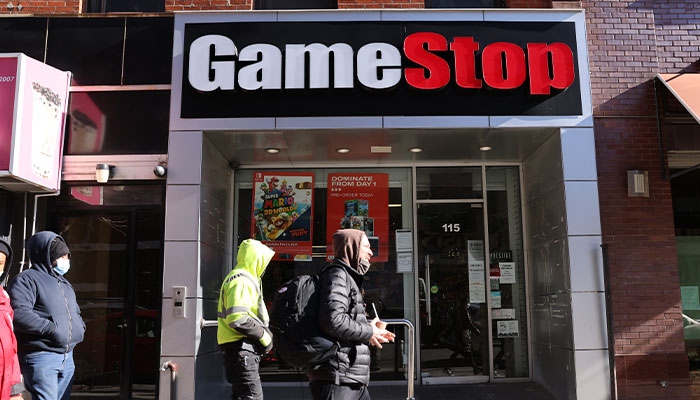One of the unforeseen consequences of the global pandemic and associated lockdowns has been the rise of the amateur retail stock market trader.

Hot to pop: A bubble simply means an asset is overpriced, explains Professor Servátka.
An explosion in online trading platforms, low interest rates and people stuck at home with time on their hands has helped feed record trading volumes by retail traders. Retail traders buy and sell for themselves using their own personal accounts, as opposed to institutions, which trade on behalf of groups or large funds.
The ABC recently reported on the dramatic growth in volume in equity markets. An article published on January 30 noted: "Volume in the equity markets has also been growing rapidly over the past few years with 2020 trading volumes 50 per cent higher than in 2019, and 2021 currently tracking 40 per cent higher than in 2020. Most of this new volume trends towards the retail side with 40 per cent of every day’s volume in names under $5 …"
So can this activity distort the market, affect its efficiency and generate bubbles?
According to Professor of Economics Maroš Servátka, Director of Macquarie Business School's Experimental Economics Laboratory, the potential exists.
How to spot a bubble
“Whether or not there is a bubble depends on the underlying value of the listed company. If the company’s performance has improved, the higher price will reflect this new information. This would not be a bubble,” he says.

Mania: The buying by Reddit users of stocks in GameStop showed the power of retail investors if they band together.
“A bubble simply means an asset is overpriced. Stock prices are determined by supply and demand. An increase in demand (or trading volumes), in this case from retail investors, will increase the price, assuming an unchanged supply of the stock.
"If the price increase is driven purely by (often speculative) demand and not by commensurate improved performance, it likely means a bubble.”
As the recent Reddit-fuelled trading frenzy and related volatility of the US stock GameStop, a video-game retailer, showed, retail investors can have tremendous power if they band together. According to Servátka, who studies bubbles using experimental economics methods, it appears the GameStop phenomenon was a bubble.
Even in situations where traders are informed about the fundamental value of an asset, laboratory experiments have demonstrated that bubbles emerge naturally.
“Bubbles are very interesting,” says Servátka. “Important insights regarding market bubbles and their formation have been generated by laboratory economic experiments."
In the lab, researchers create real markets in which they can control the trading environment and the fundamental value of an asset by determining the stream of future payments that asset will generate, Servátka explains.
Even in situations where traders are informed about the fundamental value of an asset, laboratory experiments have demonstrated that bubbles emerge naturally.
- Family Court abolition doesn't fix the problems faced by divorcing families: study
- Are we ready for driverless cars?
“The fundamental value of GameStop as an asset has not changed much recently. So using the standard definition that the stock price has exceeded the fundamental value, this was a bubble.
“Our research demonstrates that an ‘English-Dutch-style’ auction [read about those here] eliminates bubbles in a situation where financial derivatives – such as stock options like those that drove GameStop to atmospheric levels – are unavailable and investors can only trade assets.
"Whether the English-Dutch auction also eliminates bubbles with derivatives present is a testable hypothesis. Adding a derivative market into the experiment would provide a stress-test of this trading institution."
Aim for diversity, not instant returns
Servátka has some sage advice for new retail investors, especially those tempted to join in runaway stocks that may be bubbles.
“The downside of market bubbles is that once they pop, investors who paid a high price for a stock in the hope it would climb even higher, loose a lot of wealth," he says.
“It is very easy to lose money and new retail investors should be careful. Rather than chasing instant, stratospheric returns, investors should create a diversified portfolio based on their needs, age and risk appetite."
- Solved – the site of Australia's first astronomical observatory
- How we can stop animals making us sick
He says the portfolio of a young person who is looking for growth will look very different from the portfolio of someone who is close to retirement age and is trying to preserve wealth.
“Educate yourself about the financial markets and the products they offer. Be aware that professional recommendations could be biased or influenced by self-interest," he says.
"Follow the news about what is happening in the markets and the economy and think about what the consequences of these events will be. Study what other investors are doing and why they are doing it.”

Maroš Servátka (pictured) is a Professor in the Department of Economics at Macquarie Business School.



